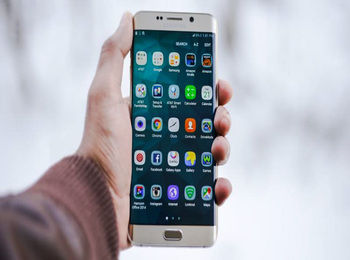We have all seen everyone joining in on the bandwagon that we all know as smart technology. It is virtually sold everywhere and in the hands, pockets, and bags of people all over the world. The desire to connect with people all over the world through the World Wide Web has been satiated as the technology to do this is not available in a compact device before. But now, there’s no need to use your computer because you can do virtually everything you do on your computer on any smartphone or smart device. Not only are big tech brands milking profits from this newfound necessity in our lives but even smaller companies that tried their luck with this business.
 We all know Google, right? It’s the most popular and well-loved browser for a lot of reasons. It probably is true that you can’t have it all because it is evident with them. Smartphone success is something that has eluded them for years until today even if they introduced the platform that most smartphones are using, Android, to the world as they copied the user-friendly graphic interface that only the iPhone had before.
We all know Google, right? It’s the most popular and well-loved browser for a lot of reasons. It probably is true that you can’t have it all because it is evident with them. Smartphone success is something that has eluded them for years until today even if they introduced the platform that most smartphones are using, Android, to the world as they copied the user-friendly graphic interface that only the iPhone had before.
For a company that now touts the virtues of closely-integrated AI, software, and hardware, Google’s mobile platform started out pretty unintegrated.
Beginning with the first Android phone, the 2008 T-Mobile G1, Google was happy to give manufacturers (and even carriers) ample control over user experience. In hindsight it seems a bit suicidal, but it worked. A decade later, Android is everywhere.
But the times, they are a’changin’. Google’s strategy of spreading Android far and wide is approaching its limits. More importantly, the company is no longer mobile-first; it’s now an AI-first company. And good AI — the kind that’s indistinguishable from magic — requires tight integration with hardware, software, and services. That’s why Google is now making its own line of devices it controls top to bottom.
Enter the Pixel 2 and Pixel 2 XL, two amazing phones Google doesn’t actually want to sell in meaningfully large numbers.
(Via: https://www.androidauthority.com/google-still-doesnt-want-sell-smartphones-heres-810729/)
Their smartphone dream is a flop. Sales are comparable to that unheard of company marketing a new smartphone that has no distinct feature aside from being a smart gadget like the multitude of other gadgets sold in the market today. Most of them are priced cheap to attract customers, which is their main selling point as compared to popular brands that cost an arm and a leg. However, Google’s failure at selling a mass volume of smartphones may not come as an accident. It may be Google’s doing why they’re staying low-key on this matter.
But smartphone technology evolves quickly, and advances in smartphone CPUs suggest that speeds and accuracy will better support AI-based virtual assistants in the near future. “A number of vendors have created more advanced processing engines or are combining the power from the CPU, GPU and DSP to form a subsystem capable of handling complex machine learning and other computational AI tasks,” said Strategy Analytics director Ken Hyers.
Software enhancements, too, will play their part, added Neil Mawston, executive director at the firm: “By combining software enhancements through machine learning and hardware enhancements in the form of AI engines, we can expect the abilities of virtual assistants to improve significantly over the next several years.
“This will result in increasingly responsive virtual assistants and more interactive experiences from the devices,” he said.
(Via: https://internetofbusiness.com/google-leads-ai-powered-smartphone-market/)
So you see, they are probably holding back right now for bigger things in the future. Google doesn’t find the current market conducive for what they have in mind but they are slowly taking the world in that direction as they continue to develop artificial intelligence and gradually incorporating it in the actual physical products that they are selling. The time is not yet ripe and indeed they are taking their sweet time as the technology is still not ripe for the taking. While others may mock them for being a flop in the smartphone business, they are still making money for simply being just the brand Google itself and all the other smaller companies they own rack in billions of dollars, enough money to fuel their desire to further the AI technology and shape the future that is waiting for all of us.
We may be looking forward to a future that is run by AI but we are still stuck in the present and all its ironies – one of which is the painful yet common problem involving data loss. You can prevent facing such issues by taking care of your hard drive. When the damage has been done, there is no point in regrets or pointing fingers. Bring your device to a trusted data recovery services pro for expert help. Data loss should not always permanent as long as you were prompt and careful in addressing the problem.
